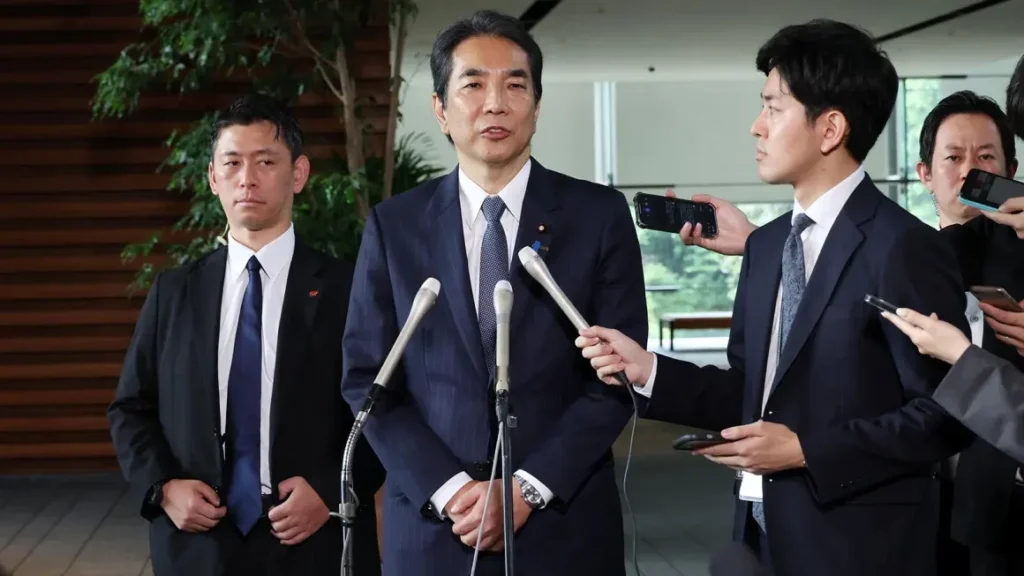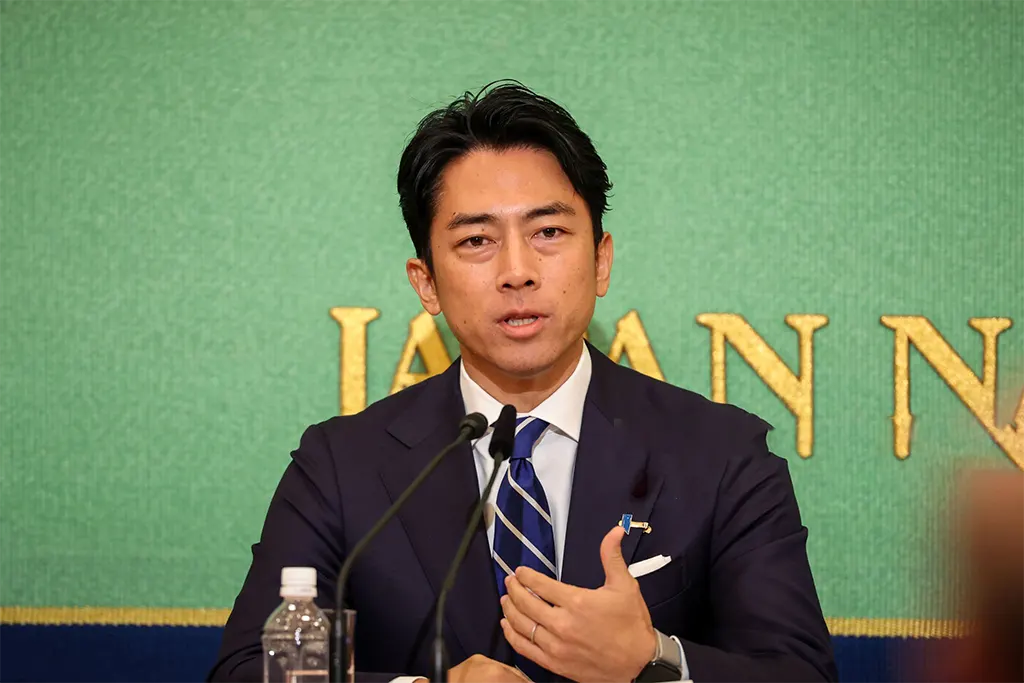
On May 21, 2025, Japan‘s Agriculture Minister Taku Etō resigned amid a firestorm of criticism over an offhand remark that he “never had to buy rice.” In a nation where rice is more than a dietary staple—imbued with cultural significance, economic weight, and political sensitivity—Etō’s words were interpreted as tone-deaf at a moment when consumers were grappling with record‐high prices. His departure not only underscores the power of public sentiment in Japanese politics but also raises pressing questions about food security, rural livelihoods, and the responsibilities of those in power.
On May 15, 2025, Minister Etō traveled to Saga Prefecture, part of a nationwide tour aimed at gauging farmer sentiment ahead of upcoming policy reforms. Saga, known for its premium Koshihikari rice, was chosen to highlight the government’s commitment to supporting key agricultural regions. Local media and farmer co-ops were invited to a public seminar at a community center in the city of Karatsu.
During a Q&A session, a rice farmer—embroiled in concerns over input costs and shrinking profits—asked Etō how the ministry planned to shield consumers from surging retail prices.
The gallery fell silent. For a minister meant to champion both growers and eaters, the admission of privilege—at a moment when average households were paying up to ¥500 per kilogram (roughly $4.50/lb)—felt a profound betrayal.
Rice—gohan in Japanese—not only means “cooked rice” but has become synonymous with “meal” itself. Shinto rituals honor rice deities; harvest festivals celebrate the year’s yield; and the ritual of offering the first harvest to ancestors binds family, community, and faith. Any perceived slight against rice touches a deep cultural nerve.
Agriculture accounts for just 1% of Japan’s GDP, yet over 60% of arable land is devoted to rice paddies. The industry employs hundreds of thousands of family-run farms, especially in prefectures like Niigata, Akita, and Saga. Consumer prices directly affect rural incomes: when retail prices soar, demand can slump, threatening farm viability.
Since postwar price supports and import restrictions (notably the 1980 Rice Trade Regulations), rice policy has been a political hot potato. Any change—tariff cuts under trade deals or subsidy shifts—provokes fierce debate in the Diet and among local councils. Ministers are acutely aware that missteps can derail careers.
Within hours, local reporters filed transcripts. National outlets—NHK, Asahi Shimbun, Yomiuri Shimbun—picked it up the next morning. Headlines read:
- “Rice Minister’s Privilege Gaffe Enrages Farmers” (Asahi Shimbun)
- “Inexcusable Insensitivity: Opponents Demand Resignation” (NHK News)
Online, the hashtag #米大臣辞職 (“Rice Minister Resign”) trended on X (formerly Twitter), with users sharing personal rice‐cooking photos and expressing shock.
Opposition parties pounced.
- The Japan Communist Party called it “a betrayal of the working class.”
- The Constitutional Democratic Party threatened a no‐confidence motion within days if Etō did not step down.
Even junior coalition partners—tasked with recruiting rural support—lobbied Prime Minister Shigeru Ishiba to act swiftly to salvage the government’s reputation.
In Karatsu and nearby farming towns, farmer cooperatives organized peaceful sit‐ins at prefectural offices. Banners proclaimed:
“Rice is Life, Not Luxury”
“Minister Without Rice Basket”
Some protesters delivered rice sacks to the Diet office in Tokyo, symbolically reminding leaders that rice must never be taken for granted.
On May 18, Minister Etō issued a public apology:
“I deeply regret my careless comment that disrespected both producers and consumers of rice. I apologize unreservedly to all who were hurt.”
Despite the apology, party elders deemed his position untenable.

On May 21, Prime Minister Ishiba accepted Etō’s resignation and announced Shinjirō Koizumi—son of former PM Junichirō Koizumi and recent Environment Minister—as his replacement. Koizumi pledged:
- Stabilizing Retail Prices: Immediate review of emergency stockpile releases and import quotas.
- Supporting Farmers: Direct subsidies tied to quality standards rather than land area, encouraging sustainable practices.
- Consumer Relief: Temporary zero‐tariff measures on imported rice until domestic supply stabilizes.
The past two seasons saw rainfall anomalies:
- Typhoon damage in Kyushu reduced yields by 10%.
- Unseasonal spring droughts in Hokkaido delayed planting.
Agricultural meteorologists warn that climate volatility will increase, necessitating adaptive breeding and irrigation investments.
Fertilizer, fuel, and labor costs have climbed over 25% in the last three years. Smallholder family farms—operating on narrow margins—struggle to absorb higher input prices, often passing them to consumers.
The 1995 Rice Distribution Reform aimed to liberalize domestic markets but led to consolidation in distribution chains. Large wholesalers now command pricing power, passing inefficiencies on to retailers and, ultimately, shoppers.
Ishiba’s approval ratings—already under pressure from sluggish economic growth—dipped another 3 points, hitting an all‐time low for his tenure. With Upper House elections slated for July 2025, coalition partners fear further erosion of voter confidence, especially in rural districts.
The Democratic Party for the People (DPP) and the Japanese Communist Party (JCP) seized on the crisis, framing themselves as champions of everyday consumers. Early polls suggest a 5% swing toward opposition in key prefectures, potentially shifting the balance in the Upper House.
NGOs like Food Action Nippon called for a comprehensive food security strategy, encompassing:
- Diversification of staple crops beyond rice.
- Community cooperatives to bypass large wholesalers.
- Urban agriculture incentives to reconnect city dwellers with food origins.
This isn’t Japan’s first high‐profile gaffe:
- In 2000, Finance Minister Hikaru Matsunaga resigned amid scandal over insider trading remarks.
- In 2016, Defense Minister Gen Nakatani faced backlash for speaking casually about defense budget cuts in the midst of regional tensions.
Each time, careless words eroded public trust, demonstrating the zero‐tolerance edge of modern media scrutiny.
Koizumi’s signature initiative, “Rice for Tomorrow,” seeks to modernize mill facilities, support mechanization for aging farmers, and foster international rice exchanges to stabilize demand.
“Rice is our life’s work. When the minister dismisses its value, he dismisses us.” — Mr. Tanaka, second‐generation rice farmer. “We pay more than any other group in industrialized countries for our staple. A minister should taste the same hardship as his constituents.” — Ms. Sato, head of Consumer Rights Japan.
Economists forecast rice prices may remain elevated through 2025’s harvest season, barring significant policy intervention.The Upper House elections in July will test whether opposition parties can capitalize on rural and urban discontent—or if Koizumi’s reforms can restore confidence.Public servants across ministries are reminded that cultural awareness, stakeholder empathy, and careful language are non‐negotiable in maintaining legitimacy.
Taku Etō’s abrupt resignation over a seemingly innocuous statement underscores how deeply ingrained rice is in Japan’s social fabric—and how a single phrase can topple a minister. As Shinjirō Koizumi steps in, he inherits not only a policy crisis but a public relations imperative: to prove that government listens, learns, and leads with humility. In a country where every grain matters, words—and the hearts they affect—carry greater weight than any speech in parliament.



